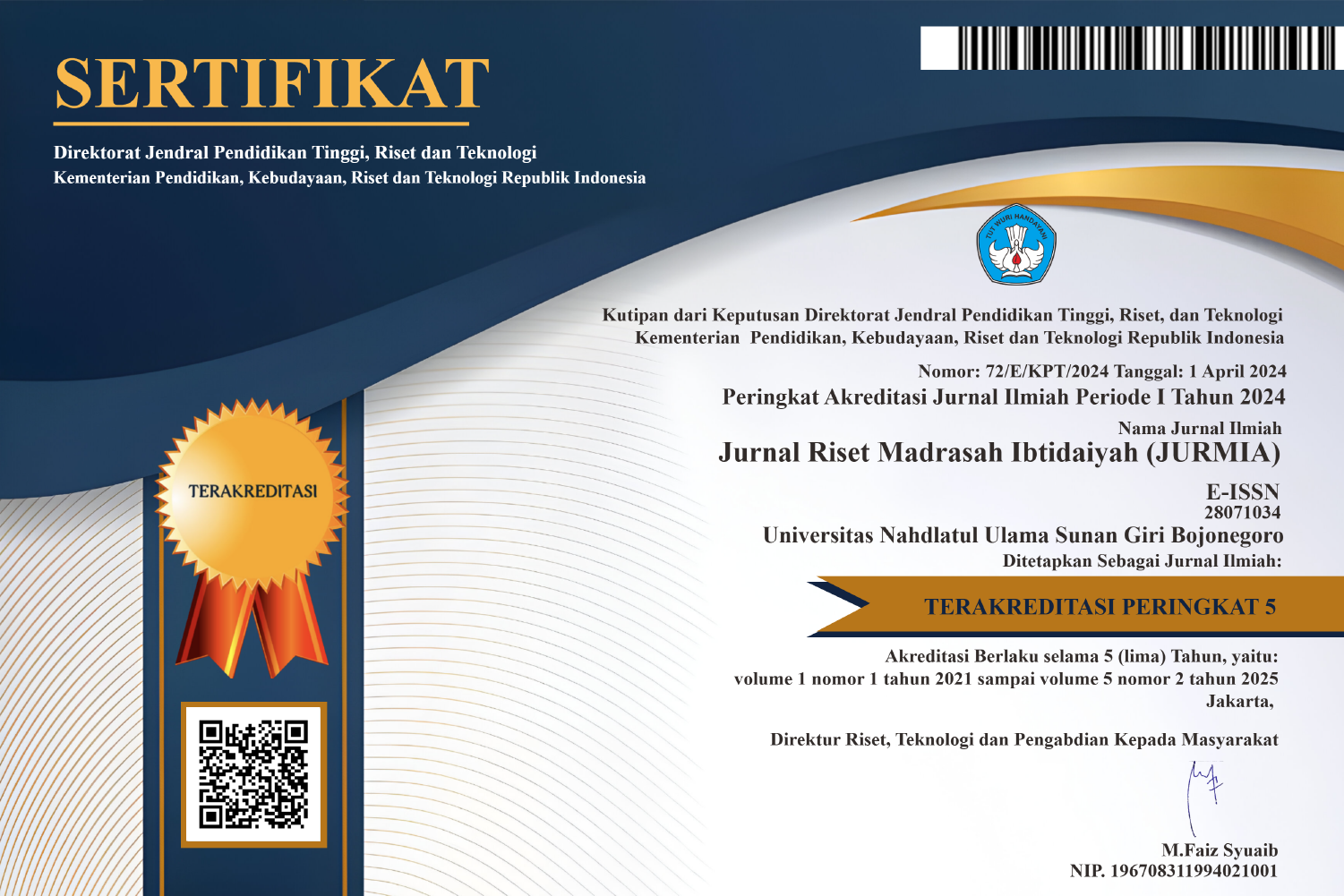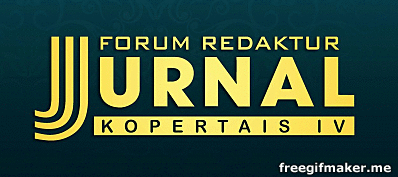Keterampilan Bertanya dengan Pembelajaran PQ4R (Preview, Question, Read, Reflect, Recite, and Review)

DOI:
https://doi.org/10.32665/jurmia.v2i2.514Keywords:
Quetioning Skills, Learning, PQ4R MethodAbstract
Learning in the 21st century emphasizes student activity in the learning process. This activity is not only physically active but also mentally active, especially active for scientific thinking. One indicator of the activity is the high intensity of students in asking questions and the quality of questions asked by students. The research conducted in Class IV MI Subulussalam Pucangsimo, Bandarkedungmulyo District, Jombang Regency, aims to analyze students' questioning skills by learning PQ4R on plant parts. This research was conducted using a descriptive research method with an observation instrument that analyzed students' questions both in quantity and quality. The results showed that students' quantitative questioning skills reached 70%, namely 17 students who were actively asking questions. As for the quality, low cognitive level questions still dominate with a percentage of 88% of all questions asked. Therefore, the questioning skills with PQ4R Learning are classified as good with the achievement of the highest level of asking questions at the high cognitive question level at the analysis stage, there is a need for habituation and improvement of high-level questioning skills so that questions are more weighty to discuss and discuss, at the end students' asking skills will also improve better.
References
Aziz, R., Sidik, N. A. H., Trimansyah, T., Khasanah, N., & Yulia, N. M. (2020). Model Suasana Kelas yang Mensejahterakan Siswa Tingkat Pendidikan Dasar. Mediapsi, 6(2), 94–101. https://doi.org/10.21776/ub.mps.2020.006.02.3
Chatib, M. (2017). Sekolahnya Manusia. Haifa Publishing.
Chin, C., & Osborne, J. (2008). Students’ Questions: a Potential Resource for Teaching and Learning Science. Studies in Science Education, 44(1).
Dewi Niswatul Fithriyah, Suttrisno, Nurul Mahruzah Yulia, & Fiki Dzakiyyatul Aula. (2022). Dampak Pembelajaran Daring Selama Pandemic Terhadap Kemampuan Kognitif Peserta Didik. Jurnal Riset Madrasah Ibtidaiyah (JURMIA), 2(1), 173–180. https://doi.org/10.32665/jurmia.v2i1.275
Dzamarah, S. B. (2000). Guru dan Anak Didik dalam Interaksi Edukatif. Rineaka Cipta.
Ramadhan, F., Susriyati, M., & Siti, Z. (2017). Kemampuan Bertanya Siswa Kelas X SMA Swasta Kota Batu pada Pelajaran Biologi. Bioedukasi, 8(1).
Rosidah, R. L. (2019). Analisis Kemampuan Bertanya Siswa dengan Memperhatikan Dimensi Proses Kognitif Pada Penerapan Pembelajaran Kooperatif. Universitas Islam Negeri Sunan Ampel Surabaya.
Royani, M., & Muslim, B. (2014). Keterampilan bertanya siswa SMP melalui strategi pembelajaran aktif tipe team quiz pada materi segi empat. EDU-MAT Jurnal Pendidikan Matematika, 2(1), 22–28.
Romadhan, S. (2021). Pengembangan Bahan Ajar Budaya Literasi Melalui Cerita Rakyat dalam Membentuk Sikap Nasionalisme Siswa Sekolah Dasar. Jurnal Riset Madrasah Ibtidaiyah (JURMIA), 1(1), 81-88.
Slavin. (2008). Psikologi Pendidikan teori dan Praktek. PT Indeks.
Suttrisno, S. (2021). Analisis Dampak Pembelajaran Daring terhadap Motivasi Belajar Siswa Madrasah Ibtidaiyah. Jurnal Riset Madrasah Ibtidaiyah, 1(1), 348380.
Suttrisno, Yulia, N. M., & Fithriyah, D. N. (2022). Mengembangkan Kompetensi Guru dalam Melaksanakan Evaluasi Pembelajaran di Era Merdeka Belajar. Zahra, 3(1), 52–60.
Suttrisno, S., & Puspitasari, H. (2021). Pengembangan Buku Ajar Bahasa Indonesia Membaca dan Menulis Permulaan (MMP) Untuk Siswa Kelas Awal. Tarbiyah Wa Ta'lim: Jurnal Penelitian Pendidikan dan Pembelajaran, 83-91.
Trianto. (2008). Model-model Pembelajaran Inovatif Berorientasi Konstruktivistik. Prestasi Pustaka.
Trianto, W. (2007). Model Pembelajaran Terpadu Konsep, Strategi, dan Implementasinya dalam KTSP. Bumi Aksara.
Usman, M. U. (2006). Guru Profesional. Remaja Rosdakarya.
Winataputra, U. S. (2007). Belajar. Widya Aksara Press.
Yulia, N. M. (2020). Pengaruh pembelajaran Elicit-Confront-Identify-Resolve-Reinforce (ECIRR) terhadap kemampuan penalaran dan komunikasi matematis Siswa Kelas IV Madrasah Ibtidaiyah Negeri 3 Jombang [Universitas Islam Negeri Maulana Malik Ibrahim]. https://scholar.google.co.id/citations?view_op=view_citation&hl=id&user=cKhrKNQAAAAJ&citation_for_view=cKhrKNQAAAAJ:zYLM7Y9cAGgC
Downloads
Published
Issue
Section
License
Copyright (c) 2022 Nurul Mahruzah Yulia, Suttrisno

This work is licensed under a Creative Commons Attribution 4.0 International License.
 PDF Download: 468
PDF Download: 468










